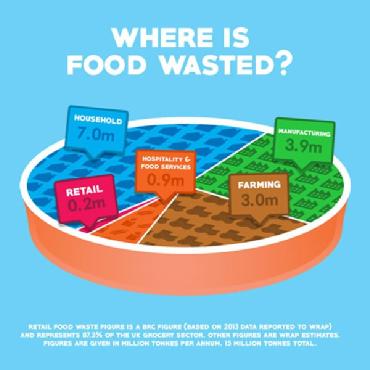Food Waste in Global Production: An Initial Brainstorm to map and Evaluate Existing Mechanisms of Governance

 A first-of-its-kind brainstorming on food waste as a global governance issue gathered academics and students from the University of Warwick, Warwick Student Union Officers, Warwick University experts on food and sustainability, external experts active in the field of food waste and food security, as well as a member from Coventry Council.
A first-of-its-kind brainstorming on food waste as a global governance issue gathered academics and students from the University of Warwick, Warwick Student Union Officers, Warwick University experts on food and sustainability, external experts active in the field of food waste and food security, as well as a member from Coventry Council.
The brainstorming consisted of two large sessions. The morning session was designed to discuss the manifold understandings and approaches towards food waste and triggered very interesting debates concerning the lexicon, the relevance of end-of-the-chain interventions and the issue of responsibility and expectations. One of the crucial themes that emerged from the conversation was that of people’s perspective of food waste and the difference that the adoption of a different vocabulary could make. If Gavin Kibble, Operations Director at Coventry Food Bank, clarified that in terms of the food which is donated to charities, it should be looked at as “food surplus and not food waste”, Tomaso Ferrando specified that the use of the ‘harsher’ notion of food waste may be useful to strengthen responsibilities and trigger a sense of unacceptability in both industries and consumers.
Beside the analysis of the different linguistic approaches, the participants to the first part of the meeting also engaged with issues like 1) The importance of reconnecting people with food, as this connection was lost due to the low cost of food, the increased distances between producers and consumers, and the multiplication of intermediaries; 2) The rhetoric that wasting food needs to be regarded as socially unacceptable, similarly to how smoking in public spaces is unacceptable; 3) Supermarket’s bargaining power and the role of contracts in generating food waste by giving the opportunity to cancel already placed orders; 4) The need for a multi-layered structure of governance that recognizes the complexity of the issue and the fact that it assumes different forms and requires more holistic interventions.
In terms of the afternoon session, the aim was to go a bit more into the core issue of food waste, mainly focusing on the obstacles and opportunities that emerge both at the level of the local municipalities (Coventry City Council was represented) and at the level of university campuses (a wide delegation of Warwick University and some representatives of Coventry University attended the brainstorming).
For what concerns the possibilities and constraints that characterize universities, and Warwick University in particular, the discussion focused on 1) the quantitative and qualitative relevance of university campuses as actors in the struggle against food waste, both because of their size and their education role; 2) the positive steps that Warwick University has already taken in tackling the issue of food waste; 3) the obstacles to food waste at the Universities and in student halls; 4) the importance of considering food waste as part of the broader food system of a campus, without excluding procurement, transport, transformation, retails, etc; 5) the fact that the University of Warwick Sustainability Team is in the process of writing a Food Policy for the University, with one of its aim being to tackle the issue of food waste.
Overall, the discussion revolved around the systemic and global nature of this core issue of food waste, and the fact that its source lies in the methods of production, transformation, distribution, and the customer’s expectations (around the world but also at the University level). Indeed, one of recurring obstacle to food waste seems to be the level of expectations customers have in terms of the food they buy. This does not only relate to expectation in terms of quality and appearance, but also in terms of the constant food choice which is available. This is true at the local level with the example of University students who expect to have all the different varieties of sandwiches available at the café on a Friday afternoon, but also at the national and international level where consumers entering a supermarket expect their corner shop to stock mangos from South Asia.
In addition, the brainstorming also represented an excellent opportunity to discuss the some of the findings of a report realized by Julie Mansuy, a Master’s student at the University of Warwick Law School, whose research is centred around food waste and regulations, and who acted as Research Assistant for the whole project.
The results of the report drew important patterns relating to the issue of food waste. One of the most significant results of the report was the production of the evidence that the majority of the actors tackling food waste were in fact intervening at the end of the food chain (see Excerpt below), a datum that reveals a tendency towards considering food waste not as an inherent consequence of the global food system that has to be addressed at its roots, but rather a resource to be reintegrated in the economic circle by means of individual responses, redistribution to charities and recycling.

Excerpt from the ‘Food Waste Public and Private Actors Report’, written by Julie Mansuy (2016).
In the spirit of GRP-GG, the conversation was highly dynamic and multi-disciplinary. Moreover, at the end of the day participants manifested their interest in establishing a stronger collaboration for the future, both to look at the issues concerning the University of Warwick and the broader problem of food waste as a systemic pitfall of the worldwide food regime. We think a seed has been planted and we look forward to seeing it blossoming.
For more information please contact Tomaso Ferrando and Manuela Galetto
